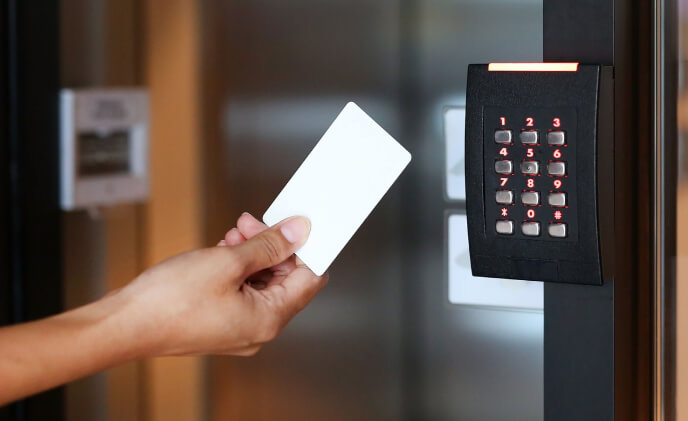
In today’s digital age, businesses are increasingly reliant on technology to streamline operations and protect sensitive data. One crucial aspect of safeguarding a business’s assets is implementing access control systems. Access control refers to the process of regulating who has permission to enter specific areas or gain access to certain resources within an organization. In this article, we will delve into the importance of access control for businesses of all sizes and explore the benefits it brings in terms of security, efficiency, and peace of mind.
Enhancing Security
Preventing unauthorized access: Access control systems play a pivotal role in safeguarding a business’s physical and digital assets by preventing unauthorized entry into restricted areas. By implementing measures such as key cards, biometric scans, or PIN codes, businesses can ensure that only authorized personnel can access sensitive locations like server rooms, executive offices, or research laboratories.
Protecting confidential data: Access control goes beyond physical security; it is equally important in safeguarding digital assets. By implementing robust authentication mechanisms and role-based access controls, businesses can limit data access to authorized employees only. This significantly reduces the risk of data breaches, intellectual property theft, and unauthorized information leakage.
Mitigating internal threats: Unfortunately, internal threats are a reality for businesses. Access control systems enable companies to implement granular permissions, ensuring that employees can only access the resources necessary for their roles. This reduces the potential for insider threats and minimizes the impact of any unauthorized activities within the organization.
Increasing Operational Efficiency
Streamlining access management: Traditional lock-and-key systems can be time-consuming, costly, and easily compromised. Access control systems eliminate the need for physical keys, allowing for efficient management of access rights. Administrators can easily grant or revoke access privileges, track access events, and generate detailed reports. This streamlines operations, minimizes administrative overhead, and provides a comprehensive audit trail.
Flexibility and scalability: As businesses grow and evolve, their security requirements change. Access control systems offer the flexibility to adapt to these changes seamlessly. An Orlando Access control business owner told me whether it’s adding or removing user accounts, adjusting access permissions, or integrating with other security systems, such as surveillance cameras or intrusion detection systems, access control provides a scalable solution that can be tailored to meet the evolving needs of the business.
Improved employee productivity: With access control systems in place, employees no longer have to worry about physical keys or remembering complex passwords for various resources. This eliminates time wasted on searching for keys or requesting access, enabling employees to focus on their core responsibilities. The convenience and efficiency provided by access control positively impact employee productivity and satisfaction.
Meeting Compliance and Regulations
Industry-specific compliance: Many industries have stringent regulatory requirements, such as healthcare (HIPAA), finance (PCI-DSS), or data protection (GDPR). Access control systems assist businesses in meeting these compliance standards by providing robust security measures and maintaining audit trails. Compliance violations can result in hefty fines and reputational damage, making access control an essential component of risk management.
Data privacy protection: With privacy concerns on the rise, access control helps businesses protect personal and sensitive information. By implementing access control measures, companies can ensure that customer data, intellectual property, and confidential information are accessed only by authorized individuals. This builds trust with customers and partners, enhancing the business’s reputation.
Conclusion
Implementing access control systems is no longer a luxury reserved for large corporations. In today’s interconnected world, businesses of all sizes and across various industries must prioritize security, efficiency, and compliance. Access control provides a robust framework to safeguard physical and digital assets, streamline operations, and meet regulatory obligations.